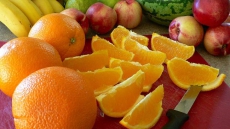Do you want to help trim yours and your family’s waistlines? One can save over a month’s worth of calories every year by ditching 'ready meals' and instead taking a Do it Yourself (DIY) approach to making common foods.
The research by etailer AppliancesDirect found that the average family stands to save 240,000 calories, the equivalent of 32 days’ recommended calorie intake for a family of four, by home-making meals, instead of relying on shop prepared versions, reports femalefirst.co.uk.
The statistics indicate Britain is a nation of false foodies which, despite being obsessed with cookery shows like the “Great British Bake Off” and “Masterchef”, has the highest ready meal consumption in Europe.
“Obesity rates have never been higher and that is largely due to our lifestyles. Our grandparents were brought up on single-ingredient whole foods and we should eat more like them,” said Nik Litwinenko-Jones, lifestyle nutritionist at Quality for Life Fitness.
“Yet now it's too easy to opt for ready-meals packed with long lists of ingredients - as a rule the longer the list the more you should avoid. These meals have best before dates of many weeks, meaning they are packed with salt, sugar and preservatives, increasing your risk of life-threatening illnesses such as Coronary Heart Disease and Type II Diabetes,” added Jones.
More than 65 percent of Britishers admit to eating ready meals five times per week, while 57 percent buy readymade fruit juices or smoothies three or more times per week.
But not only are these pre-prepared products often laden with excessive sugar, salt and fat, statistics indicate they are also much more expensive.
By switching to home-prepared foods instead, the statistics show that the average family could save almost 2,000 pounds per year, the cost of the average family holiday.





